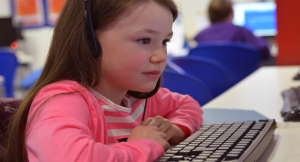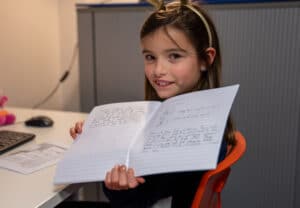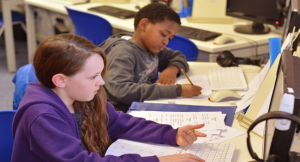Understanding Learning Difficulties
 Here Are Some Common Term Explained by our Expert Tutors
Here Are Some Common Term Explained by our Expert Tutors
The term ‘Learning Difficulties’ tends to strike terror into parent’s hearts. It can bring up all kinds of worry and guilt about how they ‘got it’. The truth is that everyone is different, and everyone learns in different ways.
Here is a quick guide some of the jargon.
Dyslexia
Dyslexia is the most well know, and is difficulty with reading. Everyone finds reading difficult to some extent at first, so really it is about degree. Many children have some problems with ‘acquiring language at the word level’ as it is defined. Most children overcome this quickly, but some children get stuck and find it difficult to make progress.
Dysgraphia
Not to be confused with this is Dysgraphia. This would be a broad range of problem, everything from handwriting and forming letters, to organizing and making sentences make sense when writing.
 Dyspraxia
Dyspraxia
If your child tends to fall over, has trouble balancing or buttoning a shirt and other practical skills; this may be described as Dyspraxia. They may have problems holding a pencil or with handwriting, but it can be a more global problem with how the brain coordinates the body.
Dyscalculia
More recognized now than it used to be is Dyscalculia. This is a kind of ‘number blindness’. Some children find it hard to memorise number facts (2+2 =4) or have terrible problems with money or time.
Aphasia
Dysphasia or aphasia is difficulty with the spoken language. How we convey information through language is very complicated, but some children find it hard to tell a story or understand directions and instructions.
| Dyslexia | Problems reading, writing, spelling. |
|---|---|
| Dyscalculia | Problems doing math problems, understanding time, using money |
| Dysgraphia | Problems with handwriting, spelling, organizing ideas |
| Dyspraxia (Sensory Integration Disorder) | Problems with hand–eye coordination, balance, manual dexterity |
| Dysphasia/Aphasia | Problems understanding spoken language, poor reading comprehension |
The good news about all learning difficulties is that people who study the brain now believe that it is much more ‘plastic’, or able to change, than they previously thought. Therefore it is great to identify issues early and start helping your child to overcome them as soon as possible.
Why is there a new National Curriculum and what does it mean?

What’s new in the National Curriculum?
Mainly it means that the government wants to raise standards and put a greater emphasis on core subjects like numeracy and literacy. Although the new curriculum is intended to be more challenging, the content is actually slimmer than the previous curriculum, focusing on essential core subject knowledge and skills such as essay writing and computer programming.
| Subject | What’s new in the Maths & English Curriculum |
|---|---|
| English |
|
| Maths |
|
What does this mean for our tuition?
Our tutors have always had a strong emphasis on handwriting, grammar and spelling in English; as well as times tables and other mental maths skills. We hardly ever let children use calculators! We have also sourced a new set of English and maths activities which support your child’s leaning and, as a result, we will be trading under a new name. From Mon 11th April we are delighted to announce that we will be known as I Love to Learn Professional Tuition.



